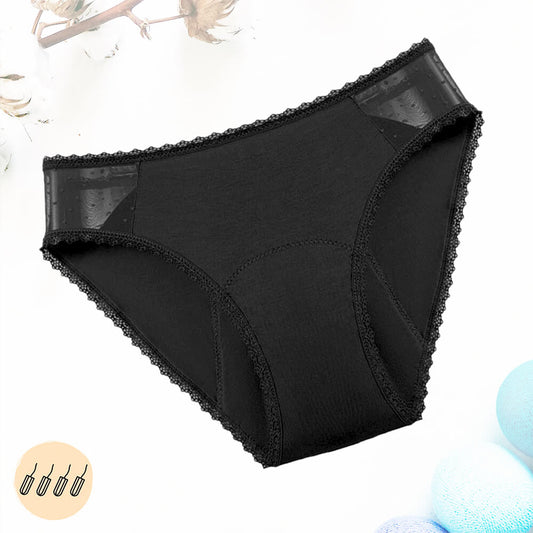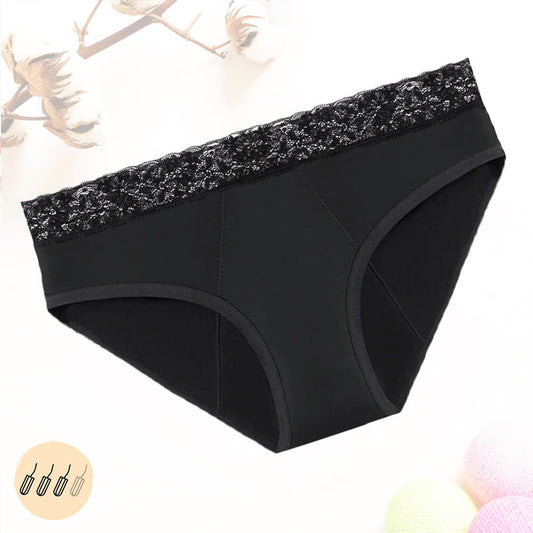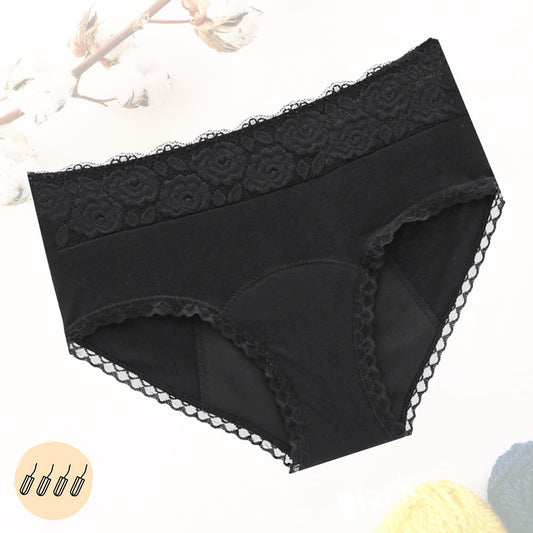
Period is the time of the month when your uterus sheds uterine lining (endometrium) that has built up over the past 28 days (more or less depending on each person's period), which doesn't exactly create an ideal environment. for the installation of a fetus. During a normal menstrual cycle, most women often experience a surge in libido around the time of ovulation. It makes sense from a reproductive standpoint. Indeed, just before ovulation, estrogen levels are at their highest levels and kick your libido into high gear.
The Influence Of Hormones On Your Sex Life
During your period, estrogen is at its lowest, as is progesterone (the hormone that prepares your body for pregnancy). It would therefore make sense that your libido would also be at its lowest for the duration of your period. After all, libido begins to decline as women age because their hormones also decline.
But, contrary to what happens during menopause, not all hormones decrease during menstruation even in case of irregular periods. You are actually experiencing a small testosterone surge. Although testosterone is stereotypically known as the hormone that makes men want to have sex all the time, women also have low levels of testosterone. Thus, the slight rise in testosterone during menstruation can lead to an increase in libido in some people. Of course, there can be other factors, including the psychological effects of knowing that sex during menstruation is (usually) safe, and the benefit of extra lubrication.
Sex During Period

The four phases of your cycle influence how you feel and often impact your sex life. For example, we tend to be most interested in sex five to six days before and after day 14 of our menstrual cycle. Day 14 is usually the day ovulation occurs, and the days before ovulation are when reproductive hormones, such as estrogen, are at their peak. It's also the best time for a woman to try to get pregnant, because that's when she's most fertile. Whatever the reason, there are clear benefits to having sex during menstruation even when there is period disorders.
How does the libido evolve during the menstrual cycle?
Sex can be more or less attractive depending on the time of the month because your sensitivity and feelings change from week to week. Of the vaginal discharge At cervical dilation, your body gives you clear signs of the best time to conceive, or for many, the best time to practice. Your level of desire and arousal before or during your period is largely due to constantly fluctuating hormone levels during different phases of your cycle.
-
During Menstruation
Luteinizing hormone (LH), progesterone, estrogen and testosterone are at their lowest levels while follicle-stimulating hormone (FSH) begins to rise, preparing the body for a new cycle.

Most women who have their period fall into one of two categories: those who are totally horny or those who don't even think about it. How you feel about your period, as well as how you feel physically, can positively or negatively impact your libido. For example, fatigue, cramps, nausea or blood can make the idea of sex during menstruation unthinkable.
-
Follicular phase
During this phase, your hormone levels begin to rise. You certainly feel more active, more confident and more attractive, and therefore more aroused. Your desire begins to increase, and you'll no doubt find yourself taking matters into your own hands in bed.
-
ovulation
Your estrogen levels peak a few days before ovulation and drop immediately after. Luteinizing hormone (LH) and follicle-stimulating hormone (FSH) also peak just before ovulation, but decline more slowly after egg release. Testosterone also peaks and begins to decline. You may find that your desire increases in the days leading up to ovulation.
-
Luteal Phase
After ovulation, progesterone continues to rise until it peaks about halfway through and then drops if no fertilization takes place. Estrogen rebounds slightly before dropping again in the days leading up to your period. LH, FSH and testosterone also continue to drop. During this phase of your cycle, your libido probably begins to drop, especially when you suffer from the symptoms of PMS, which can negatively affect your mood. Progesterone is known to affect mood and anxiety as well. Since stress is a blocking factor for many people, this is probably not the best time for your libido.
What Other Factors Affect My Libido?
There are a host of other factors and behaviors that can affect your libido, such as travel, stress, exercise, or even taking birth control pills. All of these things affect your sexual activity by acting on your hormones.




